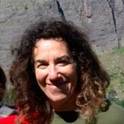A new program, Teaching Ecological Complexity, is working to develop a heightened capacity for systems thinking among high school biology and environmental sciences teachers. During a 2-week field-based course, the teachers use qualitative conceptual modeling, participate in all stages of field experimentation, and formulate plans to teach field research with their own classes. Qualitative conceptual modeling was found to be useful in revealing the underlying perceptions of ecosystem functioning for these novice scientists. Preliminary results showed improvement in their ability to recognize and apply some of the attributes of complex ecosystem: non-linear feedback loops, hierarchical organization, patterns illustrating the spatial arrangements of species diversity. In addition to using models, teachers used peer-learning techniques. Collegial discussions about what they understood at particular points in time were useful in improving their understanding of ecosystem phenomenon.
Available at: http://works.bepress.com/marion_dresner/7/
